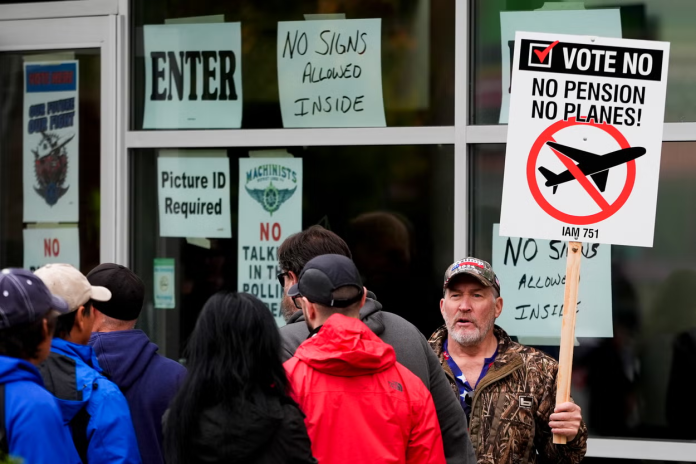Boeing plant workers voted to reject a contract offer, prolonging a more than five-week strike, according to Reuters.
64% of workers voted against the agreement, which called for a 35% wage increase over four years. The move dealt a blow to the plan of new CEO Kelly Ortberg, who pledged closer co-operation with factory workers.
Earlier, 95% of workers voted against the first contract last month, reflecting years of employee dissatisfaction. They felt cheated by the company in negotiations a decade ago. Now the union is seeking a 40% wage increase and the return of defined benefit pensions.
Workers at the Boeing plant also voiced their dissatisfaction with wages lagging behind inflation, and paying record bonuses to management. About 33,000 employees stopped work at Boeing plants on the West Coast on 13 September, halting production of the best-selling 737 MAX jet, as well as the 767 and 777 wide-body aircraft.
Old wounds
After the vote, union leaders said they were ready to immediately resume talks with Boeing in the first major negotiation since 2014. At that time, the company used the threat of moving production of a new version of the 777 aircraft out of the region to push for a deal that would end traditional pensions.
When Boeing and IAM reached a deadlock earlier this month, acting US Secretary of Labour Julie Su helped bring the latest proposal to a vote by participating in face-to-face talks with both parties in Seattle last week.
Boeing announced plans to cut 17,000 jobs and was close to implementing a move to raise up to $15 billion from investors to preserve its investment-grade credit rating. Meanwhile, some airlines were forced to cut schedules due to delays in aircraft deliveries.
Voting data showed that both parties were approaching a deal, but there was still a solid majority in favour of extending the strike. Many workers are still angered over the last deal signed a decade ago.
